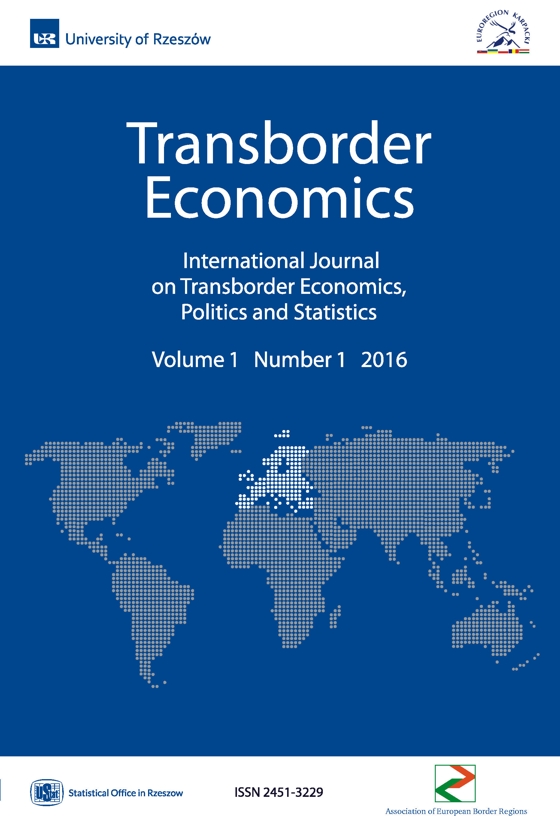Afghanistan-Pakistan trans-border economic activities and their challenges
Słowa kluczowe:
crossing point, informal, illegal, re-exportAbstrakt
With respect to a long borderline between Afghanistan and Pakistan, there are some regions in the east of Afghanistan which have been recognized as a free zone for most legal and illegal economic activities. This paper attempts to sched light on those economic activities and their benefits through descriptive statistics. There are some economic activities which take place in that region such as free tax re-export, narcotic traffic, and so on. These economic activities have advantages and disadvantages for both sides of the line. Consumers of the both sides are gaining from these activities, but informal and illegal economic activities along the Durand line have harmed economy of Afghanistan. The narcotic business and rapid changes in its price from the field to the border line and destination country are the examples of serious challenges for Afghanistan, as well as for the region. Although poppy (row material of the narcotic) is cultivated in Afghanistan, east border line is the main corridor for exporting narcotics to the world. Formal import and informal re-export (unregistered) increase the gap between export and import's statistics and affect official statistics. This paper has focused on the informal and illegal economic activities that take place on the Torkham, Shalman and Sasobai markets, which are the main crossing points between Afghanistan and Pakistan.
Downloads
Pobrania
Opublikowane
Jak cytować
Numer
Dział
Licencja
Prawa autorskie (c) 2016 TRANSBORDER ECONOMICS. International Journal on Transborder Economics, Finance, Politics and Statistics

Utwór dostępny jest na licencji Creative Commons Uznanie autorstwa – Użycie niekomercyjne – Bez utworów zależnych 4.0 Międzynarodowe.


